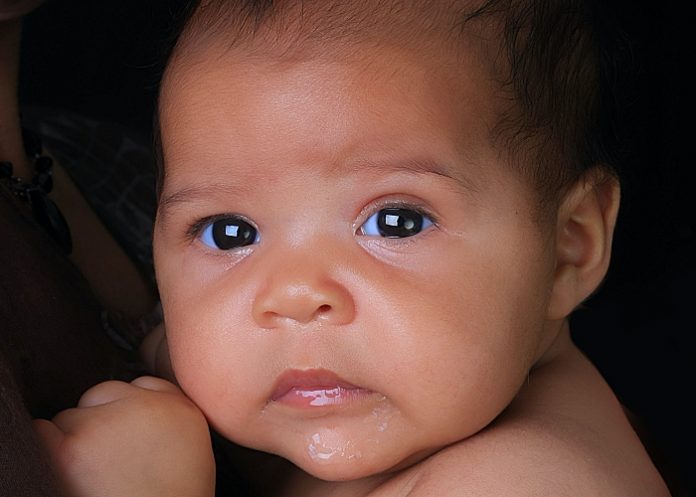A first nationwide survey of American hospitals has revealed a wide variety of approaches to newborn skincare, including the timing of the first bath, as well as advice for parents, that is “inconsistent and potentially contradictory” among healthcare providers. .
Believed to be the first of its kind, the survey sought to document newborn skincare practices at hospitals countrywide. Doctors have increasingly come to appreciate the importance of infant exposure to natural skin microbes, but there are no clear evidence-based guidelines for hospitals to follow.
The result, the researchers said in the study published in Hospital Pediatrics, is a mishmash of practices that sometimes break down along regional lines.
"The variation is a direct result of previously not having a good understanding of what really is the best way to care for a baby's skin," said researcher Dr Ann Kellams of UVA Children's. "The hope now is that this work will challenge us all to take a look at the evidence and incorporate practices that protect babies the most."
The skincare that babies receive in the hours and days after birth has long- term effects, shaping breastfeeding outcomes, infant skin health and even infection rates. For example, those who are birthed vaginally are known to have decreased rates of childhood allergies compared with those born by Caesarean section.
That said, there is little hard evidence on health outcomes associated with delayed bathing and other newborn skin practices, like using specific soaps and cleansers. That often leaves doctors with conflicting opinions, often built on anecdote and personal experience.
To get a sense of the practices in place around the country, the researchers sent 16 questions to nursery medical directors at 109 hospitals that are members of the Better Outcomes through Research for Newborns (BORN) network. The questions asked about bathing practices, the products used and the advice given to parents, among other topics.
The responses indicated: 87% of hospitals delay the first bath by at least six hours; 10% send babies home without a bath, a practice more common in non-academic centres and on the West Coast. There is a huge variety of products and procedures used, though almost all include a “baby” soap containing detergents known to compromise the newborn's skin integrity. Bathing advice for parents, such as whether they should use soap when washing the baby, is “inconsistent and potentially contradictory” among healthcare providers. This can leave parents confused and uncertain what to do.
The evidence underpinning most hospitals' skincare practices is "scant", the researchers report in the paper outlining their findings. They urge the formulation of more consistent guidelines built on hard evidence.
"Given the potential widespread clinical impact of newborn skincare and the paucity of data to support or refute widespread adoption of specific practices, further research is needed to improve and standardise care in US nurseries and mother-baby units," they write.
COVID-19 guidelines may also be needed, they add. "Based on one large case series of maternal hospitals in New York City showing no increased morbidity to newborns, authors recommend that early skin-to-skin contact and delayed bathing can be practiced even in newborns born to mothers infected with COVID-19."
Developing better, evidence-based guidelines in general would benefit all parents and infants, Kellams says. "In the future, we may see a decreased emphasis on soap, an increased emphasis on oil-based cleansing and an increased emphasis on the application of emollients," she said. "Better skin integrity would offer more protection to the babies against infection, development of allergies, etcetera."
Study details
Variation in Newborn Skincare Policies Across United States Maternity Hospitals
Julia Wisniewski, Carrie Phillipi, Neera Goyal, Anna Smith, Alice Hoyt, Elizabeth King, Dennis West, W. Christopher Golden, Ann Kellams.
Published in Hospital Pediatrics on 11 September 2021;
Abstract
Objective
Newborn skincare influences levels of beneficial factors from vernix and vaginal secretions but also the emergence of potential skin pathogens. However, evidence-based national guidelines for newborn skincare do not exist, and actual hospital practices for newborn skincare have not been described. In this study, we test the hypothesis that US maternity hospitals follow differing policies with regard to newborn skincare.
Methods
A 16-question survey querying skin care practices was distributed to nursery medical directors at the 109 US hospital members of the Better Outcomes through Research for Newborns network. Data from free text responses were coded by 2 study personnel. Survey responses were analysed by using descriptive statistics and compared by region of the United States.
Results
Delaying the first newborn bath by at least 6 hours is a practice followed by 87% of US hospitals surveyed. Discharging newborns without a bath was reported in 10% of hospitals and was more common for newborns born in nonacademic centers and on the West Coast. Procedures and products used for newborn skincare varied significantly. Parental education on tub immersion and soap use was also inconsistent and potentially contradictory between providers. Evidence cited by hospitals in forming their policies is scant.
Conclusion
In this study, we identify similar and strikingly different newborn skincare policies across a national network of US maternity hospitals. Research is needed to identify effects of differing skincare routines on skin integrity, infection rates, and child.
See more from MedicalBrief archives:
McAlpine’s Law: Quacks rush to fill a vacuum
Snuggling reduces maternal stress
Supportive touch and less painful procedures help prem babies
Higher vitamin B levels in pregnancy lower child eczema risk

